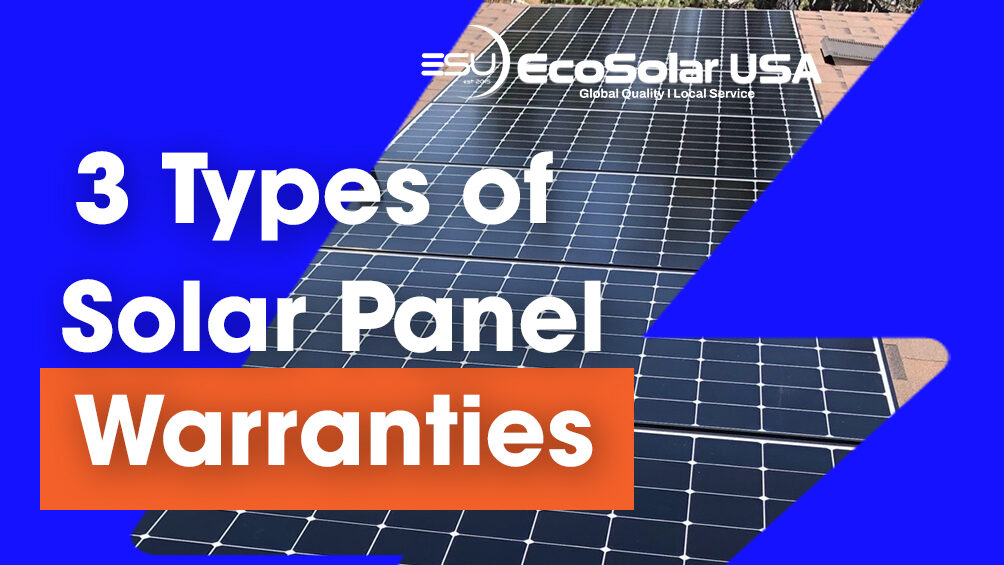
When investing in solar panels, most homeowners focus on cost savings, tax credits, and energy independence. But one of the most overlooked — yet crucial — aspects of your solar installation is the solar warranty. A strong warranty protects your investment, ensures long-term performance, and gives you peace of mind.
In this article, we’ll break down the types of solar warranties, why they’re important, what to look for, and what happens if your installer or manufacturer shuts down.
Types of Solar Warranties
When you install a solar energy system, there are typically three types of warranties you’ll encounter:
1. Performance Warranty
- Guarantees your panels will produce a certain percentage of their rated output over time.
- Most solar panel manufacturers guarantee at least 80–90% performance after 25 years.
- Protects you from significant energy production drops due to panel degradation.
2. Labor Warranty
- Covers the installation work performed by your solar contractor.
- Ensures that issues caused by poor wiring, faulty connections, or improper mounting are fixed at no cost.
- Typically lasts 5–10 years, depending on the installer.
3. Manufacturer Warranty
- Protects against defects in the panels, inverters, racking, and other equipment.
- Coverage ranges from 10–25 years, depending on the product.
- If a component fails prematurely, the manufacturer provides a replacement or repair.
Why Is a Solar Warranty So Important?
Solar panels are a long-term investment, designed to last 25–30 years. A strong warranty ensures:
- Reliable energy production
- Financial protection against unexpected repairs
- Higher resale value for your property
- Peace of mind knowing your system is backed by trusted coverage
Key Factors to Consider in a Solar Warranty
Not all warranties are created equal. Here’s what to check:
Warranty Length
- Industry standard: 25 years for panels, 10–25 years for inverters, and 5–10 years for labor.
Coverage Details
- Does it cover parts and labor, or just replacement equipment?
- Is shipping included for replacement parts?
Transferability
- Some warranties transfer to the new homeowner if you sell your property — a major plus for resale.
Exclusions and Limitations
- Check for exclusions like damage from extreme weather, shading, or DIY modifications.
Claims Process
- A warranty is only as good as the claims process. Look for companies with clear, customer-friendly policies.
What Don’t Solar Warranties Cover?
- Natural disasters (floods, hurricanes, earthquakes) unless you have additional insurance.
- Improper maintenance or tampering with your system.
- Normal wear and tear beyond guaranteed performance levels.
- Cosmetic issues that don’t affect performance (like minor scratches).
What Happens If the Manufacturer or Installer Shuts Down?
This is a common concern, especially with smaller or newer solar companies. Here’s what you need to know:
If Your Manufacturer Goes Out of Business:
- Your product warranty may become void.
- Look for brands backed by bankable, financially stable companies.
- Some products are covered by third-party insurance-backed warranties, offering added protection.
If Your Solar Installer Goes Out of Business:
- You may lose your labor or workmanship warranty.
- Manufacturer warranties usually remain valid as long as the equipment is still supported.
- Consider working with established installers with a proven track record.
Choosing the right solar warranty is just as important as choosing the right solar panels or installer. A comprehensive warranty safeguards your system, maximizes your savings, and ensures your solar investment delivers value for decades.
When comparing quotes, always ask about:
- Warranty length
- What’s included
- Transferability
- The claims process
By doing your research up front, you’ll enjoy the full benefits of solar with confidence and peace of mind.
